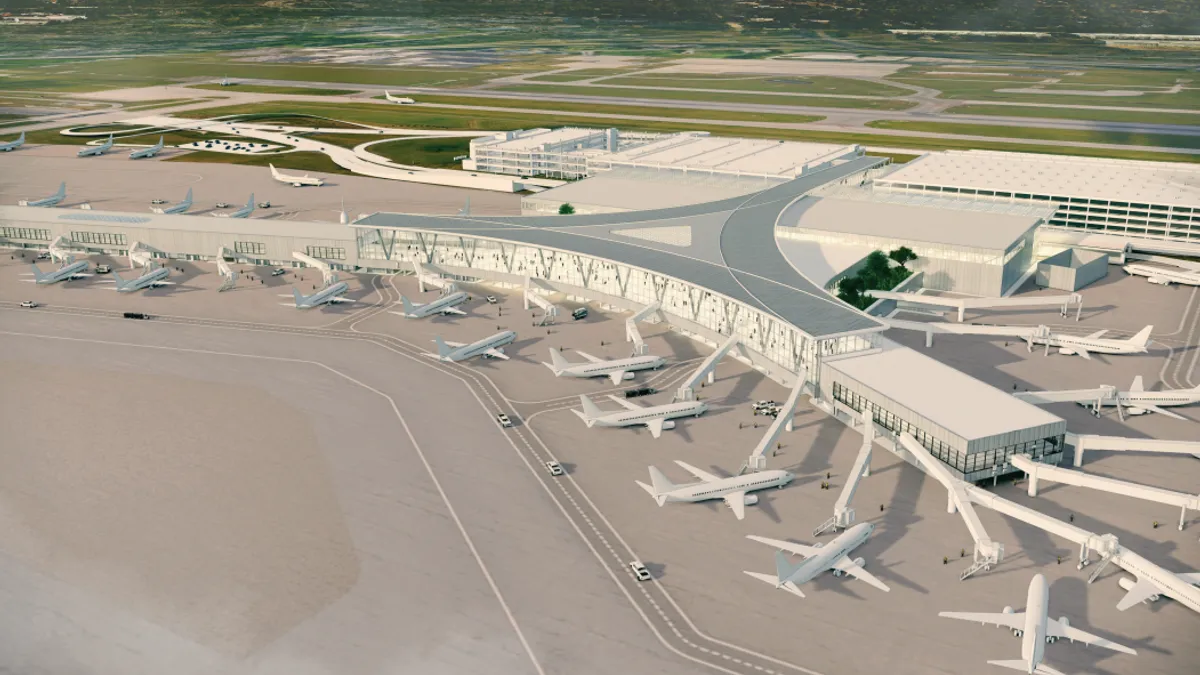Dive Brief:
- Union leaders have called on Hensel Phelps, general contractor on the $2 billion terminal project at John Glenn Columbus International Airport in Columbus, Ohio, to adopt a project labor agreement that would include paying workers a prevailing wage, the Columbus Dispatch reported.
- Dorsey Hager, executive secretary-treasurer of the Columbus Building Trades Council, said the Columbus Regional Airport Authority has included prevailing wage requirements in the contract. Nonetheless, Hager claimed a Community Benefit Agreement — a type of project labor agreement — would be more binding than a commitment.
- Both Hensel Phelps and the CRAA said in statements shared with Construction Dive they remain in “good faith” dialogue with the trades council over structuring a potential CBA, and that they are committed to both supporting a diverse workforce and ensuring workers receive a prevailing wage.
Dive Insight:
Hager confirmed that the trades council is in conversations with the general contractor and project owner about a CBA, adding that such an agreement would provide a clearer pathway for workers to recoup lost funds if they do not receive the prevailing wages. Without one, he said, workers’ best recourse would be to go to court if the contractor or CRAA reneged on their commitments.
“We’ve had some conversations, but nothing that’s really materialized,” he said, though he emphasized budgeting has begun for planning the phases of the project. The Columbus Building Trades Council represents workers from 22 local unions in the region.
Prevailing wage agreements ensure workers earn the average wages of similarly employed workers in the surrounding region. Federally funded projects typically require prevailing wage agreements. The Columbus terminal construction will use money from federal grants, in addition to funds from airlines, passenger fees, parking and concessions.
Associated Builders and Contractors’ Central Ohio chapter, which represents construction employers, released a statement against an agreement, claiming it would hamper construction opportunities and inflate the cost of construction.
Both CRAA and Hensel Phelps also highlighted the 25% disadvantaged business enterprise participation program on the project, which equates to $400 million of contracts intended to go to small, local, minority-, women- and veteran-owned businesses.
Columbus is the fastest-growing metro area in the Midwest, so the airport authority has planned to construct a new terminal to service the larger population. Construction of the terminal could begin in late 2024, with completion in late 2028 or early 2029, according to a project fact sheet. The project is currently in the design development phase.
When finished, the terminal will add a checkpoint, an atrium, 36 gates (two of which will serve international arrivals) and a 5,000-space parking garage.













